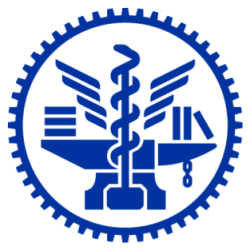國立陽明大學臨床醫學研究所博士班成立於民國七十五年三月,於民國八十九年成立碩士在職進修專班。首任所長由姜必寧教授擔任,歷經余家利教授、林幸榮教授、吳肇卿教授、謝世良教授、周德盈教授,現任所長為王錦鈿教授。
本所原以臨床醫師為特定招生對象,提供臨床醫師進修研究的機會,因應時代變遷,為提供非醫師背景的優秀人員多一個進修管道,自九十三學年度起,博士班開始招收非醫師學生。
民國九十七年八月(九十七學年度第一學期),學校為了組織再造及師資、資源共享的目標,將原陽明大學熱帶醫學研究所併入本所,因此本所除原有的碩士在職進修專班外,自97學年度第一學期起開始有碩士班。
本所宗旨:
培育能以疾病研究為導向從事轉譯醫學研究的科學家。
教育目標:
博士班需具備獨立進行深入的機轉性研究及設計實驗的能力。
碩士班為培養基本的研究能力、能學習各種實驗技能及研究方法。
Introduction
Institute of Clinical Medicine was founded by the first director, Benjamin N Chiang, in 1986. It was then succeeded by Cha-Li Yu, Shing-Jong Lin, Jaw-Ching Wu, Shie-Liang Edmond Hsieh, and Teh-Ying Chou. The current director is Professor Chin-Tien Wang.
In the beginning, students entered this institute were limited to attending physicians with a purpose of training in integrative study in clinical medicine, basic science, and advanced study for a Ph.D. degree. In 2000, a master program for physicians was established. In 2004, a Ph.D. program focusing on molecular medicine was founded for non-MD master students who have bio-medical backgrounds.
Purpose
- Encourage promising young physicians and students to enter the institute.
- Strive for sufficient space and budget.
- Invite and appoint outstanding teaching staff with diverse and complementary research experience.
- Organize integrative research teams to investigate various aspects of basic medical sciences, as well as translational and clinical research with international competing capabilities.
- Establish master’s degree programs for molecular medicine and genetic counseling.
Course Description
In the post-genomic era, we aim to educate and train young physicians and scientists to face the ever-growing emergent diseases. Clinical research will not be limited in the observation and analysis of manifestations and courses of patients. Instead, in depth investigations of functions and regulations of disease genes, molecular pathogenic mechanisms of diseases, interactions of genes with environments or pathogens will become the main stream of research. The teaching program will be thus arranged to equip students with advance research methods, independent and logic thinking and research capability. Particular emphasis will be on molecular mechanisms of diseases and staying on the cutting-edge of the latest medical developments, to strengthen students’ niche in scientific competitiveness.
Research Achievements
There are several collaborative and multi-disciplinary research projects, focusing on cardiovascular, cancer, stem cell research and infectious diseases, among faculties in our institute and Taipei-VGH. These disease oriented programs with the emphasis of translation research have resulted in more than 625 publications for the last 16 years, including several high impact factor papers published in, for example, Nature Cell Biology and Hepatology.

